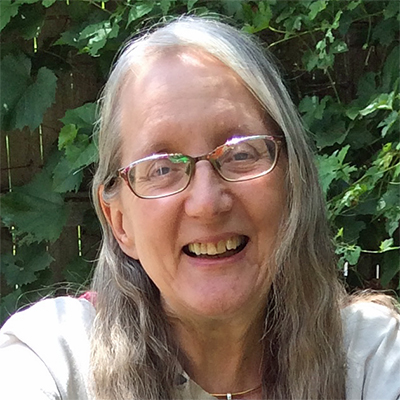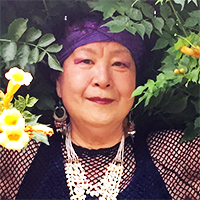North Street Book Prize 2019
Honoring the best self-published books of poetry, children's picture books, graphic narrative, genre fiction, literary fiction, and creative nonfiction
Honorable Mention $250
- Jessica Goody, Defense Mechanisms, Poetry
- Melissa Yap-Stewart, Little Moss, Big Tree, Childrens Picture Book
- Stephen Barnwell, Willoughby’s World of Wonder, Graphic Narrative
- Molly Lazer, Lentils in Black Rice, Genre Fiction
- Abigail Anklam, According to Their Kinds, Literary Fiction
- Joan Alden, Her Widow, Creative Nonfiction
- Alexander Watson, River Queens, Creative Nonfiction
Thanks to everyone who entered our fifth annual North Street Book Prize for self-published books of poetry, genre fiction, mainstream/literary fiction, creative nonfiction/memoir, children's picture books, and (new this year) graphic narrative. We received a door-busting 1,657 entries, up from 997 in 2018!
Our first-round screeners, literary scholar Annie Keithline and poet and game designer Jim DuBois, worked heroically to narrow down the entries to about 50 books for final judges Ellen LaFleche and Jendi Reiter. Editor and social worker Lauren Singer Ledoux, a past North Street screener, made a special appearance as the tie-breaker when Ellen and Jendi could not agree. Kudos to Annie for her extensive social media outreach, which diversified and expanded the entry pool.
Once again we found it extremely helpful to use score sheets for the initial screening, and to request hard copies from the semifinalists so that all the books could be equally accessible to the judges. We appreciate the extra time and expense of sending these copies; please know that your book received careful consideration even if we deemed it not quite ready for a prize. On the score sheets, our screeners gave us an at-a-glance assessment of the book's character development, plot, pacing, social awareness, and sophistication of writing, as well as trigger warnings and thematic keywords to help us keep the books distinct in our minds.
In making our final picks, we looked for topics and situations we hadn't seen before; characters we cared about; steady, compelling pacing; and respectful depictions of people's bodies and backgrounds. Our winners opened up new worlds to us through the stories of a middle-aged gay couple river-boating across the Deep South, a comical cast of friends at an inner-city record store, a whimsical Victorian bestiary, and 19th-century Native Americans fighting displacement from their ancestral lands, to name just a few.
Some rookie mistakes in fiction and memoir writing that put us off: Know when to use summary instead of scene. Don't spend pages describing routine actions. If you are going to depict every step of a character's making dinner or getting from here to there, it should reveal a key plot point or emotional state that you couldn't convey any other way. Same for filler dialogue ("How are you?" "I'm fine"). In historical novels, name-dropping of famous people or events is not a substitute for re-creating the atmosphere of that time and place.
We strongly advise authors to do their due diligence with research, especially in specialty fields like science and medicine. We always check for accuracy, even for science fiction book entries. Science fiction must have enough connection with real-world science to make the implausible feel plausible to the reader. This year we saw many serious errors with dialogue written in foreign languages, notably spelling errors and incorrect accents. At a minimum, check the spelling, grammar and accents; best of all, have all foreign words and dialogues edited by a native speaker. Be aware that your characters living in Latin America, for example, will be likely not be speaking the kind of Spanish spoken in Madrid. Again, consult a native speaker.
We say this every year and we'll say it again: Stop making gratuitous judgments about other people's body size, age, social class, or sexual desirability. You're writing literature, not a gossip column. This year we demoted or rejected quite a few books for portraying working-class and poor people in one-dimensional, othering ways.
Some essay collections read like compilations of blog posts, which we understand is a trend nowadays. This format falters when the collection feels padded with less significant pieces to make the page count. A story or essay collection is still a book, and as such, requires an internal logic to its progression of topics, as well as thoughtful pacing that makes each piece enhance the ones that follow it. Similarly, for fiction collections, there was an unfortunate tendency to lead off with shorter, undeveloped vignettes. Such pieces work better as interludes between more substantial stories, if you must include them at all.
When writing outside your experience, consult the experts. Sensitivity readers are your friend! We won't take sides in the controversy as to whether less-marginalized people "should" or "can" write about more-marginalized groups, e.g. cisgender folks writing transgender or intersex characters. But you owe it to that community to ensure that your portrayal is accurate and doesn't accidentally play into harmful stereotypes. Google is no substitute for having a real person fact-check the science behind your plot devices.
Graphic narratives (fiction or nonfiction comic books for adults) and picture books need to have legible text first of all. There was one promising-looking comic that we simply couldn't judge because we couldn't read the tiny white-on-dark print. The text should be in a style that harmonizes with the mood, the illustrations, and the tastes of the target audience—for instance, a larger, cuter, warm-feeling font for a kids' book. Design-wise, the words should be an integral part of the visual composition, not like a caption.
Poets, read your work aloud. Do your line breaks conform to the cadence and emphasis of the content? There are computer programs that can tell you the most-used words in your collection. Look for these patterns and consider varying your language. What works in a single poem can become a monotonous device across a whole book.
Our Winners
Grand Prize winner J.R. Weber's verse-drama Lay of the Land combines an ambitious hybrid literary form with meticulous research and heroic imagery to re-create a tragic episode in American history, the 1862 Mdewakanton Sioux uprising against European immigrant farmers who colonized their land. This little-known incident proves to be emblematic of the U.S. government's ongoing injustice towards Native Americans, as well as the way that the ruling class sets poor whites and people of color against each other. It is also, simply, stirring epic poetry in the high-modernist style. For a limited time, Mr. Weber is making his book available for free to our readers. Download it here (PDF).
Children's Picture Book winner Mama's Needle by Jeanette Stickel is a gentle tribute to an African-American mother's imaginative artistry expressed through quilting. In the tradition of Ezra Jack Keats' classic The Snowy Day, it captures the wonder of everyday life through a child's eyes. Honorable Mention winner Little Moss, Big Tree by M. Yap-Stewart sweetly handles friendship and loss through a beautiful woodland allegory.
Graphic Novel winner Blackwax Boulevard collects the first five years of Dmitri Jackson's funny and poignant webcomic about a struggling inner-city record store and the misfits who call it home. The strip takes an affectionate, sometimes satirical, look at the centrality of music to African-American identity formation. Honorable Mention Stephen Barnwell's Willoughby's World of Wonder is a whimsical mock-encyclopedia of mythical beasts, illustrated with Victorian-era etchings.
Poetry winner Katy McKinney's lyrical lines in Fireproofing the Woods connect the fragility of our marvelous planet to a beloved sister's death from cancer. Her deft experimentation with various poetic forms complements her theme of nature's amazing patterns, which human intervention can disrupt but hopefully sometimes restore. Honorable Mention Jessica Goody uses stunning aquatic imagery to depict life with cerebral palsy in Defense Mechanisms.
Creative Nonfiction winner Li Mo's imagistic, introspective memoir Spirit Bridges depicts a childhood indelibly marked by political trauma, a lost young woman's coming of age in the American counterculture of the 1960s-70s, and a midlife re-integration of herself through the visual and performing arts. Born in Shanghai in 1947, Mo was only two years old when the city fell to the Communists, who executed her father. Her mother, an international journalist, smuggled her and her two younger siblings out of the country, first to Taipei, then Europe, and finally to New York City in 1960.
We awarded an extra Honorable Mention in this category because we couldn't choose between the two judges' favorites. Joan Alden's Her Widow, a grief memoir structured as a series of lyrical, yearning letters to her partner who's died of cancer, reveals the added impact of homophobia and family estrangement as she mourns a relationship that some would like to pretend never existed. The entertaining River Queens by Alexander Watson chronicles a middle-aged gay couple's unlikely odyssey across the rural South in a vintage wooden yacht.
Genre Fiction winner Suanne Laqueur's An Exaltation of Larks combines an ambitious family saga with a bisexual love triangle, spanning world events from the 1973 CIA-backed coup in Chile to the aftermath of September 11, 2001. A great strength of this book was the characters' rich inner lives. Honorable Mention winner Molly Lazer's slim but satisfying Lentils in Black Rice remixes classic fairy tales with modern social awareness.
Literary Fiction winner Bob Sylva's inspiring story collection The King of Karaoke draws on his experience as a Sacramento newspaper feature writer to depict the resilience and creativity of the city's working-class immigrants. We meet dreamers and exiles like the shy Mexican waiter whose prosthetic hand transforms his personality, and the mattress-maker from Côte d'Ivoire for whom curing insomnia is a spiritual vocation. Honorable Mention Abigail Anklam's According to Their Kinds is a sensitive collection of tales about our relationships with the animal kingdom, from a pioneer youth's boxing match with a kangaroo, to a chilling speculative fiction piece about the sudden death of all the birds in the world.
We would like to recognize and encourage these finalists:
Children's Book
Edna Ma, Travel, Learn and See Your Friends
Jenny Rogers, Sophie's Gift
Graphic Narrative
Michael Baskin, The Living Water: Rise of Lilith
Poetry
Meta Sarmiento, Tie Your Shoes Kid
Ron Kipling Williams, Black Freak Mosh Heaven
Creative Nonfiction
Dima Ghawi, Breaking Vases
Sandra Knauf, Please Don't Piss on the Petunias
Literary Fiction
Kate MacDonald, Venis
See our press release about the winning entries. See the current contest.
Contest Judges

Ellen LaFleche
Ellen LaFleche is a past judge of our North Street Book Prize. She has worked as a journalist and women's health educator in Western Massachusetts. Her manuscript, Workers' Rites, won the Philbrick Poetry Award from the Providence Athenaeum and was published as a chapbook in 2011. Another chapbook, Ovarian, was published in 2011 by the Dallas Poets Community Press, and a third chapbook, Beatrice, about a semi-cloistered nun, was published in 2012 by Tiger's Eye Press. Her poems have been published in Spoon River Poetry Review, Hunger Mountain, New Millennium Writings, The Ledge, Alligator Juniper, Many Mountains Moving, Harpur Palate, Southeast Review, and Naugatuck River Review, among many others. Prose credits include her 2014 Daily Hampshire Gazette article "Taken too soon, at 65: My husband John Clobridge's final days with ALS". She also reviews books for Wordgathering, the online journal of disability poetics. She has won the Ruth Stone Poetry Prize, the New Millennium Poetry Prize (shared with Jim Glenn Thatcher), the DASH Poetry Journal Prize, the Poets on Parnassus Prize for poetry about the medical experience, second prize in The Ledge Poetry Awards, and the Editor's Choice Award for Poetry from Writecorner Press.
Contest Judges

Jendi Reiter
Jendi Reiter is vice president of Winning Writers, editor of The Best Free Literary Contests, and oversees the Winning Writers literary contests. Jendi is the author of the novel Origin Story (Saddle Road Press, 2024), the short story collection An Incomplete List of My Wishes (Sunshot Press, 2018), the novel Two Natures (Saddle Road Press, 2016), the poetry collections Introvert Pervert (The Word Works, 2026), Made Man (Little Red Tree Publishing, 2022), Bullies in Love (Little Red Tree Publishing, 2015), and A Talent for Sadness (Turning Point Books, 2003), and the award-winning poetry chapbooks Swallow (Amsterdam Press, 2009) and Barbie at 50 (Cervena Barva Press, 2010). Awards include a Massachusetts Cultural Council Artists' Grant for Poetry, the 2016 New Letters Prize for Fiction, the 2016 Rainbow Award for Best Gay Contemporary Fiction, the 2015 Wag's Revue Poetry Prize, the 2013 Little Red Tree International Poetry Prize, the 2012 Betsy Colquitt Award for Poetry from Descant magazine, the 2011 James Knudsen Editor's Prize in Fiction from Bayou Magazine, the 2011 OSA Enizagam Award for Fiction, the 2010 Anderbo Poetry Prize, and second prize in the 2010 Iowa Review Awards for Fiction. Jendi's work has appeared in Poetry, The New Criterion, Mudfish, Passages North, Cutthroat, Best American Poetry 1990, and many other publications. See their interview in RoundPier.
Contest Judges

Annie Mydla
Annie Mydla is the managing editor of Winning Writers. Born in Boston in 1989, she moved to Poland at the age of twenty-seven, where she now lives full time. Annie has critiqued over 600 full-length books and manuscripts through her work with the Winning Writers critique service and the North Street Book Prize, and read over 8,000 self-published books as a North Street assistant judge. She and her team deliver North Street judging feedback to approximately 1,500 authors per year. Annie oversees a staff of five in Poland, coordinates contest administration and customer service, and helps maintain the Winning Writers website. She is a literary scholar and writer. Check out her Winning Writers blog posts on writing craft and industry success. Outside of work, Annie is the founder and facilitator of Autistic Women's Group (est. 2021) and the editor of its journal for literary, visual, and audio art, AWG Shares Magazine.
Contest Judges

Jim DuBois
Jim DuBois assists with the judging of our Tom Howard/Margaret Reid Poetry Contest and previously with our North Street Book Prize. He studied writing and computers at Hampshire college. Now he spends his time inventing games, writing poetry and making art.
Contest Judges

Lauren Singer
Lauren Singer is an assistant judge of our Wergle Flomp Humor Poetry Contest and a past judge of our Tom Howard/John H. Reid Fiction & Essay Contest and North Street Book Prize. She is a native New Yorker living in Western Massachusetts. Her poetry has been published in Nerve House, Bareback, Feel the Word, Read This, Kosmosis, One Night Stanzas, and other literary magazines across the country. An attendee of the New York State Summer Writers Institute, she is a graduate of Bard College at Simon's Rock and received her MSW at the University of Chicago in 2015. She has self-published three chapbooks and received an honorable mention in the 2011 Wergle Flomp contest. Her poetry book Raised Ranch was published by Game Over Books in 2025. In addition to her creative interests, Lauren works as a sex and relationship therapist and runs a private practice out of Northampton, MA. She prides herself on her wealth of useless pop culture knowledge, namely of nineties R&B lyrics, and she can pretty much quote "The X-Files".














